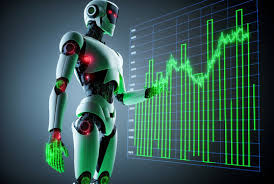In the world of foreign exchange (forex) trading, where billions of dollars are exchanged every day, technology has brought about significant changes. One such innovation that has gained popularity in recent years is the forex robot. These forex robot trading systems promise to execute trades on behalf of traders, using pre-defined algorithms and rules. But are they truly revolutionizing trading, or are they merely overhyped gimmicks?
What are Forex Robots?
Forex robots, also known as Expert Advisors (EAs), are software programs designed to analyze the forex market, identify trading opportunities, and execute trades automatically. They operate based on predefined trading strategies, which could range from simple moving average crossovers to complex mathematical algorithms.
The allure of forex robots lies in their ability to trade without emotions. Unlike human traders who may succumb to fear or greed, robots stick strictly to their programmed rules, theoretically leading to disciplined and consistent trading.
The Promise of Forex Robots
Proponents of forex robots tout several potential benefits:
- 24/7 Trading: Forex robots can operate around the clock, taking advantage of trading opportunities in different time zones, which may not be feasible for human traders.
- Emotionless Trading: By eliminating emotional decision-making, robots aim to avoid common trading pitfalls such as irrational exuberance or panic selling.
- Backtesting and Optimization: Before deploying a forex robot in live trading, users can backtest them using historical data to assess their performance under various market conditions. This allows for optimization and refinement of trading strategies.
- Diversification: With the ability to trade multiple currency pairs simultaneously, forex robots offer a means of diversification, spreading risk across different markets.
The Reality Check
While forex robots hold promise, their effectiveness is subject to debate, and there are several caveats to consider:
- Market Conditions: Forex markets are dynamic and can be influenced by numerous factors, including economic indicators, geopolitical events, and central bank policies. A trading strategy that performs well in one market condition may falter in another.
- Overfitting: Optimizing a forex robot’s parameters based on historical data carries the risk of overfitting, where the robot becomes finely tuned to past market conditions but fails to adapt to new ones.
- Lack of Adaptability: Despite claims of adaptability, many forex robots struggle to adjust to rapidly changing market conditions or unforeseen events, leading to losses.
- Broker Dependence: The performance of a forex robot can be influenced by the quality of the brokerage platform it’s connected to, including factors like execution speed and slippage.
The Human Touch
While automation has its merits, human traders bring several advantages to the table:
- Intuition and Judgment: Human traders can incorporate intuition and judgment into their decision-making process, which can be invaluable in uncertain market conditions.
- Adaptability: Humans have the ability to quickly adapt to changing market dynamics, adjusting their strategies on the fly in response to new information.
- Risk Management: Effective risk management requires nuanced judgment, taking into account factors beyond mere numerical indicators. Humans can apply risk management strategies that are contextually appropriate.
Conclusion
Forex robots represent a technological advancement in the realm of forex trading, offering the allure of automation and emotionless execution. However, their efficacy remains uncertain, and they are not without limitations. While they may complement a trader’s toolkit, they are unlikely to replace the human element entirely.
Ultimately, successful trading in the forex market requires a balance between automation and human judgment. Traders should approach forex robots with caution, understanding their limitations and conducting thorough research before integrating them into their trading strategies. In an ever-evolving market, adaptability and sound decision-making will continue to be the cornerstones of success.
